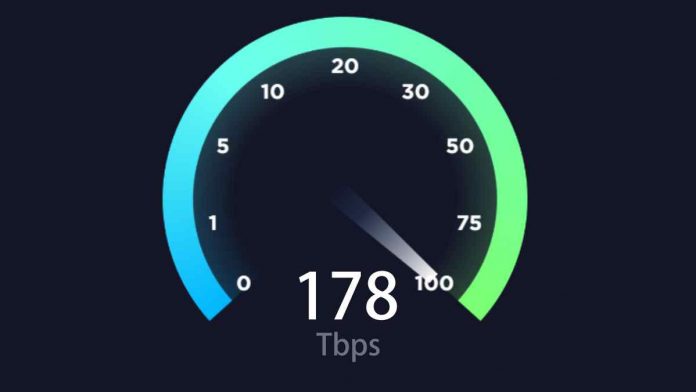Researchers at the University College London (UCL) has broken the internet world record speed by achieving a data transmission rate of 178 terabits per second (Tbps) or 178,000,000 megabits per second speed (Mbps), which is similar to downloading the entire Netflix library in less than a second.
The previous record belonged to experts at Japan’s National Institute for Communications Technology (NICT), who achieved a data speed of 172 Tbps in April.
The new record, demonstrated in the UCL lab, is a fifth faster than Japan’s NICT. The project was carried out by the Royal Academy of Engineering Researcher, Dr Lidia Galdino and Xtera and Kiddi Research.
The record, which is double the capacity of any system currently deployed in the world, was achieved by transmitting data through a much wider range of colours of light, or wavelengths than is typically used in optical fibre.
Most of the current infrastructure uses a limited spectrum bandwidth of 4.5THz, with 9THz commercial bandwidth systems entering the market, whereas the researchers used a bandwidth of 16.8THz.
To do this, researchers combined different amplifier technologies needed to boost the signal power over this wider bandwidth and maximised speed by developing new Geometric Shaping (GS) constellations (patterns of signal combinations that make best use of the phase, brightness and polarisation properties of the light), manipulating the properties of each individual wavelength.
The benefit of the method is that it can be deployed on already existing infrastructure cost-effectively, by upgrading the amplifiers that are located on optical fibre routes at 40-100km intervals.
Lead author Dr Galdino, a Lecturer at UCL and a Royal Academy of Engineering Research Fellow said: “While current state-of-the-art cloud data-centre interconnections are capable of transporting up to 35 terabits a second, we are working with new technologies that utilise more efficiently the existing infrastructure, making better use of optical fibre bandwidth and enabling a world record transmission rate of 178 terabits a second.”
At such a fast speed, it would take less than an hour to download the data that made up the world’s first image of a black hole, which due to its size, had to be stored on half a ton of hard drives and shipped to an MIT observatory.
Since the start of the COVID-19 crisis, demand for broadband communication services has soared, with some operators experiencing as much as a 60% increase in internet traffic compared to before the crisis. In this unprecedented situation, the strength and capability of broadband networks have become even more critical.
Dr Galdino added: “But, independent of the Covid-19 crisis, internet traffic has increased exponentially over the last 10 years and this whole growth in data demand is related to the cost per bit going down. The development of new technologies is crucial to maintaining this trend towards lower costs while meeting future data rate demands that will continue to increase, with as yet unthought-of applications that will transform people’s lives.”

